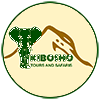About TANZANIA
The country is known as the United Republic of Tanzania (formerly United Republic of Tanganyika and Zanzibar). Zanzibar though part of Tanzania, remains independent with a separate government structure of its own. It includes the Islands of Pemba and Unguja.
Zanzibar Island is about 20 miles off the coast from the port of Dar Es Salaam, and its capital is stone town. Here you will find some beautiful beaches and coral reefs.
Tanzania mainland has a total of twelve national Parks with famous tourist attraction sites like Mt. Kilimanjaro (the roof of Africa), Olduvai gorge (the cradle of mankind), Ngorongoro crater (the largest unbroken Caldera in the world), the world-famous Serengeti national park and Gombe national park (home for human’s closest relatives- The chimpanzee) among others.
HEALTH:
Health services are relatively well developed in Tanzania. Hospitals, Dispensaries, Health Centres and other medical facilities are found across the country. Production of a valid yellow fever vaccination certificate is mandatory at the port of entry. Prophylactic treatment for malaria is recommended prior to entering Tanzania and East Africa in general. Seek advice on this from your physician / pharmacist.
LANGUAGE:
Kiswahili (Swahili) is the official language and is widely spoken throughout the country. It is important that visiting persons learn at least some Swahili greeting words. In Zanzibar and some coastal parts of the mainland Tanzania, Arabic is also spoken to a considerably large extent. English language is the second official language and is used in higher institutions of learning and also as the commercial language.
CUSTOMS:
Personal effects like binoculars, camera films and mountaineering gear may be imported temporarily, duty free. A customs bond might be required for items like video cameras, filming equipment and musical instruments to ensure re-importation. Firearms require special permit(s).
ENTRY REQUIREMENTS:
Most visitors require visas to enter the Republic of Tanzania. Depending on nationality and country of origin a visa may be obtained at the port of entry. If in doubt, please confirm with your nearest Tanzanian consulate. Visas cost between US $ 10 and 60 depending on nationality and are usually valid for 3 months.
CLIMATE:
From mid-March to late May we have the long rains, June through October is generally a dry season and the short rains come from late October to mid-December. Mid - December to March is a relatively dry period and temperatures can be quite high.
TRANSPORTATION:
One has the option of using Rail, Air or Road. There are small charter planes companies with scheduled flights to most tourist destinations and hundreds of car hire companies for 4-wheel drive vehicles (normally hired with a driver). Buses operating on set departure and arrival times can be used to commute between major towns and neighboring Kenya.
CURRENCY:
The Tanzanian shilling, with notes available in denominations of 10 000, 5 000, 1 000, 500 and 200, is the unit of currency used but most top hotels, lodges and tour operators accept payments in foreign currency, preferably US dollars. There is no limit on the amount of foreign currency that can be imported.
You may also use Visa and MasterCard credit cards. Foreign currency and traveler’s chaques can be exchanged at various financial institutions including commercial banks and forex bureau at International airports, main towns, border posts and some top hotels.
